Dialogue, not repetitive claims, way out of Iran, Kuwait, Saudi gas field row
By Alireza Hashemi
In recent months, a long-running territorial dispute over a strategically located gas field shared between Iran, Kuwait and Saudi Arabia has resurfaced with the two Arab parties claiming “exclusive rights” over it.
The dispute over the Arash gas field, known as Dorra in Kuwait and Saudi Arabia, has since the 1960s seen several cycles of claims and counter-claims by the parties involved, becoming a key sticking point in relations between the three Persian Gulf neighbors.
The latest cycle began in 2022 when Saudi Arabia and Kuwait signed an agreement to jointly develop the field, ignoring Iran’s calls for dialogue to settle the dispute and demarcate the border.
Since last month, Kuwaiti and Saudi officials have repeated the claims of having “exclusive rights” to the maritime gas field, with Iran reminding the two parties of their legal responsibilities.
It started with the Kuwaiti foreign ministry reiterating what it termed “exclusive rights” over the gas field, followed by a similar statement from the Saudi foreign ministry.
Kuwaiti oil minister Saad Al Barrak, in his remarks to Al-Ekhbariya, said his country won’t wait for a demarcation deal with Iran and will go ahead with “drilling and production” at the gas field.
On Thursday, the Saudi foreign ministry issued another statement that the kingdom and Kuwait jointly own exclusive rights to natural resources in the Arash/Dorra field.
In response, on Monday, Iran’s foreign ministry spokesman Nasser Kan’ani urged Kuwait and Saudi Arabia to avoid publicizing disagreements over the field, calling the practice “unhelpful.”
Kan’ani warned that Iran won’t stand idle if there is no desire on the part of other sides for shared exploration of the field, adding that it will pursue its own rights and interests in the field.
His remarks came a day after Iran’s oil minister Javad Owji said the country will certainly pursue its “rights and interests” if Kuwait and Saudi Arabia “do not show a desire for cooperation.”
Decades-long dispute
The Persian Gulf field was discovered by a Japanese firm in 1967. At the time, Iran granted the Anglo-Iranian Oil Company, the forerunner to British Petroleum, the right to exploit the field, while Kuwait granted its share of rights to Royal Dutch Shell.
Those concessions overlapped in the northern part of the field, and negotiations at that time failed to produce any breakthrough.
Iran in 2001 deployed drilling equipment to the field, after Kuwait and Saudi Arabia signed an agreement without Iran. But Tehran and Kuwait City both suspended their projects after a while.
Last year, after Kuwait and Saudi Arabia signed a deal, Iran termed it ‘illegal’, arguing it was against a previous agreement that the development of the field requires coordination between all three countries. An official even vowed that Tehran will resume the drilling work that was halted in 2001.

Iran and Kuwait held the latest round of talks on the dispute in March but to no avail.
On Thursday, Iran’s foreign ministry said its new envoy to Kuwait met with the Arab country’s foreign minister Sheikh Salem Abdullah Al-Jaber Al-Saba and invited him to visit Tehran.
The disputed gas field is likely to figure in discussions between the two sides during the visit.
Ahmad Moradi, the deputy chairman of the Iranian parliament’s energy commission, told the Press TV website that Kuwait should reciprocate Iran’s goodwill gestures and engage in talks in good faith.
“The dispute over the Arash field shouldn’t hurt bilateral relations between the two countries,” he said.
“Kuwait should show restraint, avoid anti-Iran propaganda and engage in serious talks to reach a fair settlement that allows it to extract the much-needed gas supplies.”
The lawmaker said that Iran is capable of unilaterally developing the field at a relatively lower cost, citing the country’s work on Soroosh and Abuzar fields.
Conflicting interpretations
A seismic survey by the Iranian offshore oil company shows around 40 percent of the field is located in Iran’s territorial waters, which renders claims made by the other two parties invalid.
Kuwait, however, disputes the Iranian claim, saying a seismic survey carried out by the UK-based Royal Dutch Shell showed Iran has no part in the field.
Now the two Arab states claim the field is exclusive to them, and have invited Iran to hold talks with them as one negotiating party to demarcate the eastern border of the so-called neutral zone.
The field is partly located in the offshore section of the neutral zone shared between Saudi Arabia and Kuwait, which was established by British imperialists in the area.
The two countries later divided this neutral area but agreed to equally share production revenue there.
Iran has so far held talks only with Kuwait, as Iran-Saudi Arabia maritime border was delineated in 1968.
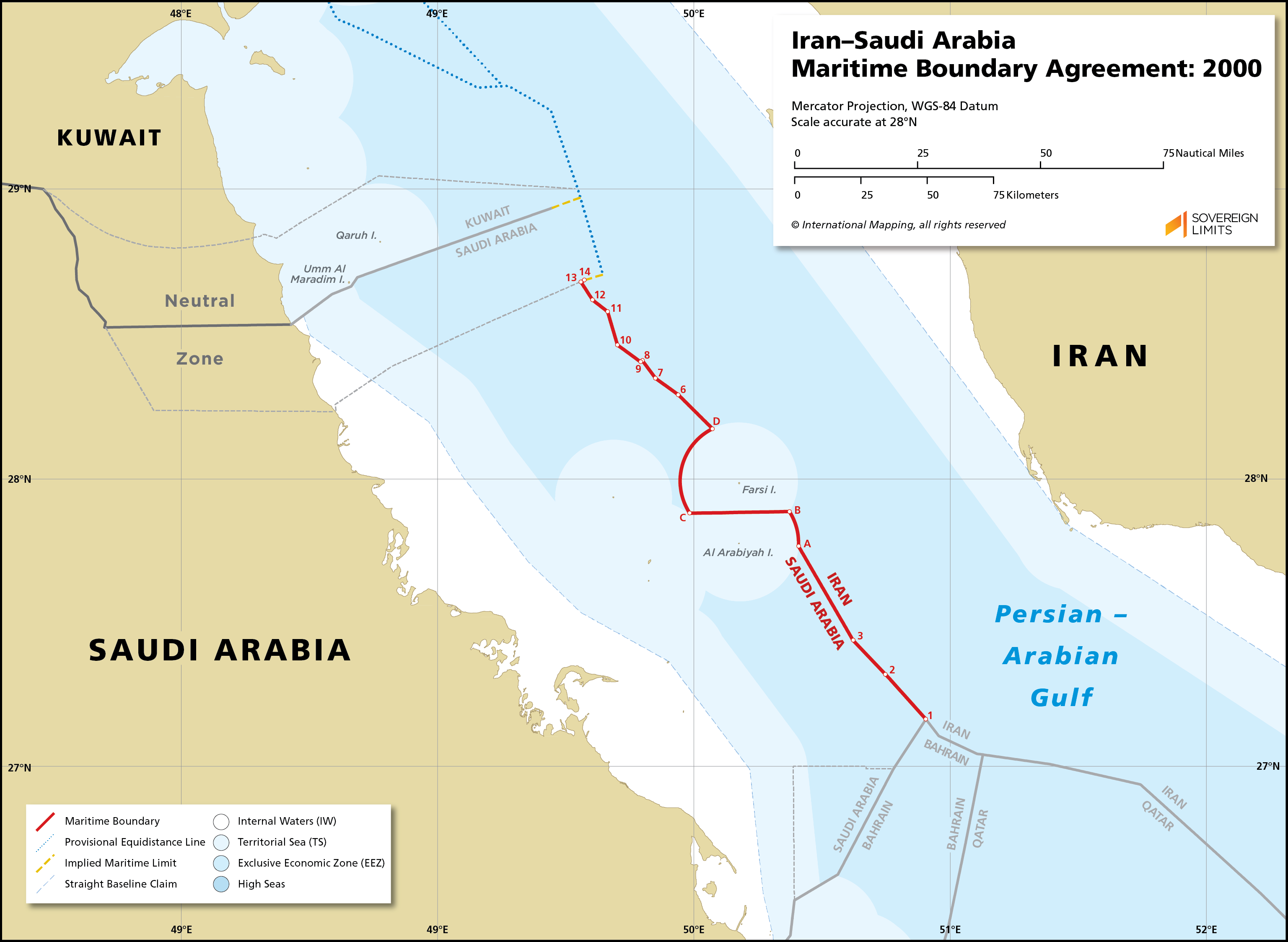
Zahra Pishgahi Fard, a geopolitics professor at the University of Tehran, told the Press TV website that Kuwait’s official position on the demarcation of its border with Iran is inconsistent with the 1982 Law of the Sea Convention, to which the Arab country is a party.
Fard said a map used in Kuwait’s 2014 maritime zones law extends the country’s territorial sea beyond the median line, in violation of the convention.
She further noted that this is not the only problem, leading the Kuwaiti zone to largely overlap with Iran’s maritime zone.
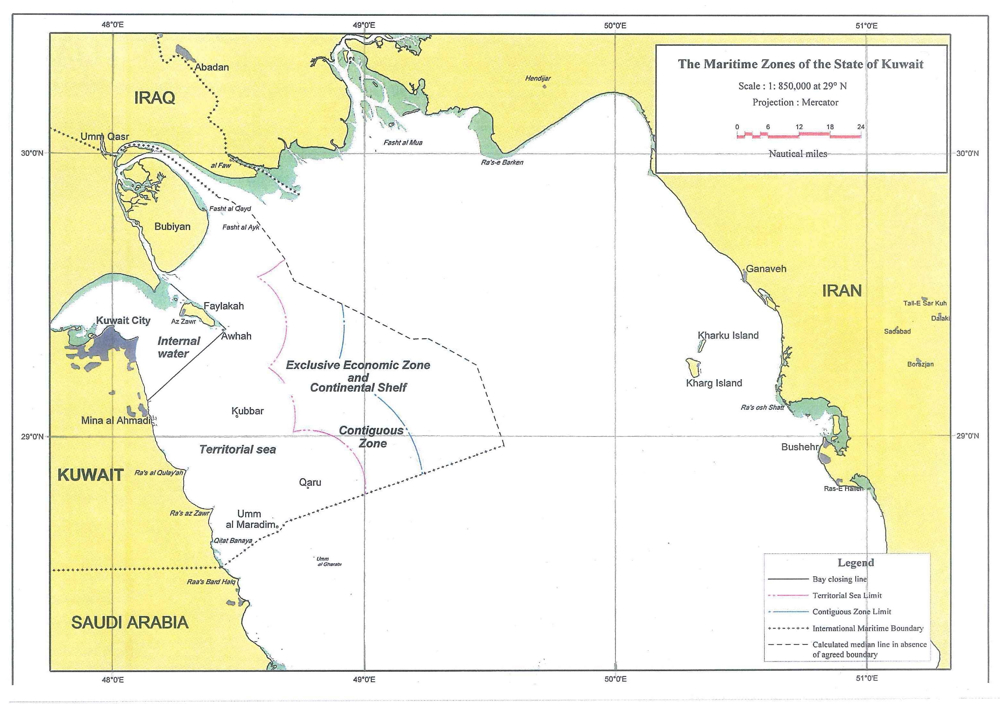
“The Kuwaiti law has incorrectly used straight baselines at the mouth of Kuwait Bay, as the length of closing lines there is over 24 nautical miles limit set by convention,” Fard told the Press TV website.
“Also, Kuwait’s baselines are drawn too far from the mainland and take a triangular shape. That’s while the convention says the baselines must not depart to any appreciable extent from the general direction of the coast.”
The professor said Kuwait has put Ouha Island in its “internal waters and behind the baselines.”
“This is while according to the 1982 convention, this island must be put in the country’s territorial waters, as its distance from the mainland is over 12 nautical miles.”
A route for cooperation
The maritime field has long been a source of tension in relations between Iran and Kuwait for long. But experts say the field can also be an “area of cooperation and synergy” between them.
Kuwait has historically had good relations with Iran, and now that Saudi Arabia is moving towards détente with Tehran, there’s a better prospect for an ultimate solution to the dispute, they say.
Meanwhile, Kuwait and Iraq have announced talks scheduled for mid-August to resolve a similar dispute over their maritime border. Those talks can help facilitate Iran-Kuwait negotiations as well.
Fard, when asked how the dispute can be settled, proposed the creation of a three-partite consortium that gives each country its fair share of the field.
“Firstly Iran-Kuwait border and Iran-Saudi border in the neutral zone should be demarcated. Then a consortium involving all the three countries can be formed to determine each country’s share of the field as per the 1982 convention,” she told the Press TV website.
If the demarcation dispute is settled, the countries can take another step forward by sharing the burden of development operation, which usually takes several years and billions of dollars in investment.
Legal mechanisms for joint production in shared gas fields are well established, offering more efficient and quicker exploitation of fields.
The three countries might also look to engage in various other forms of energy cooperation. Iran has already engaged in energy cooperation with Oman, notably the construction of an underwater pipeline to carry Iranian gas to Oman for re-exploration as Liquefied Natural Gas.
If they can find a way of cooperating with each other, this would consolidate the détente process in the Persian Gulf region, and pave the way for the settlement of more serious disputes in the neighborhood, believe experts.
How US abuses its UN veto power to enable Israel’s genocidal war on Gaza
Iran refutes US, UK accusations over Ukraine war, West Asia conflicts
Pakistani town erupts in protest after terrorists kill scores of Shia Muslims
US senator threatens ICC with military action over Netanyahu sentence
Iran: ICC indictment of Netanyahu should have included 'genocide'
VIDEO | IAEA anti-Iran resolution
Iran urges pope to help end Israeli onslaught in Gaza
VIDEO | ICC's warrant against Netanyahu


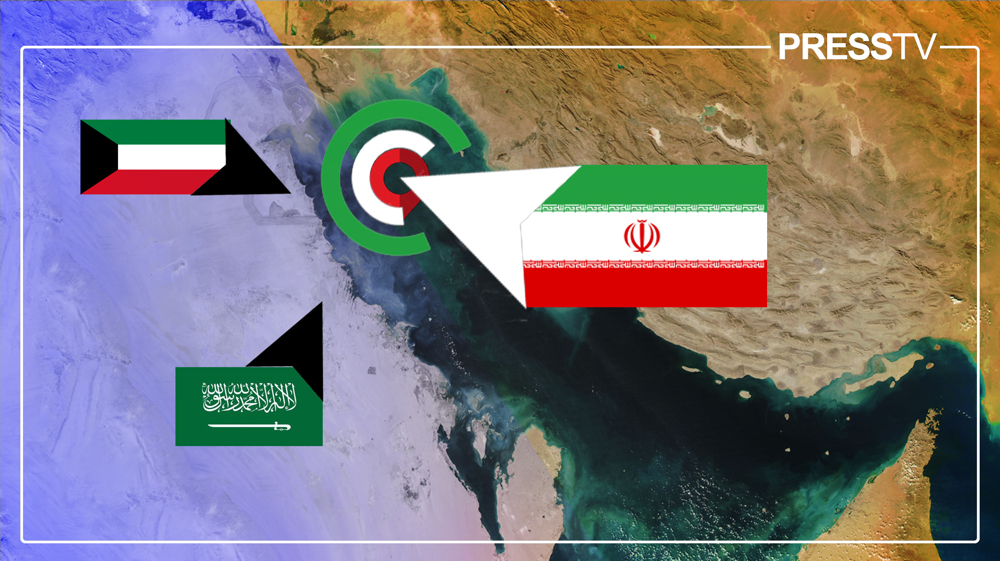
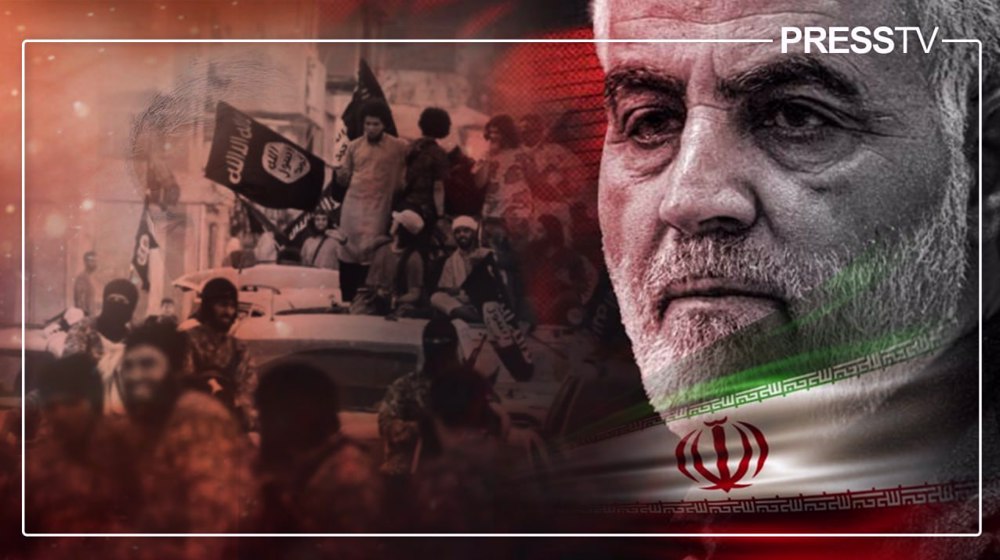
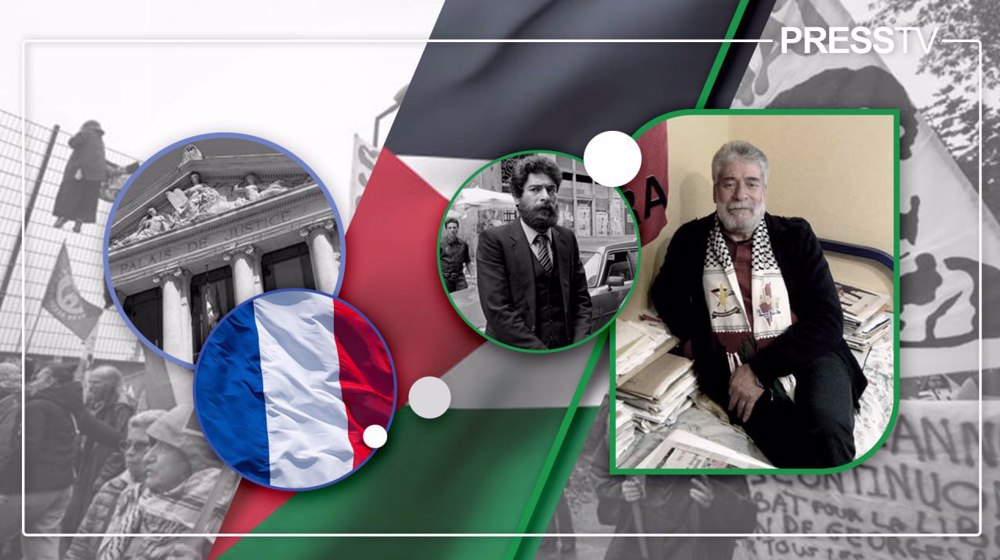
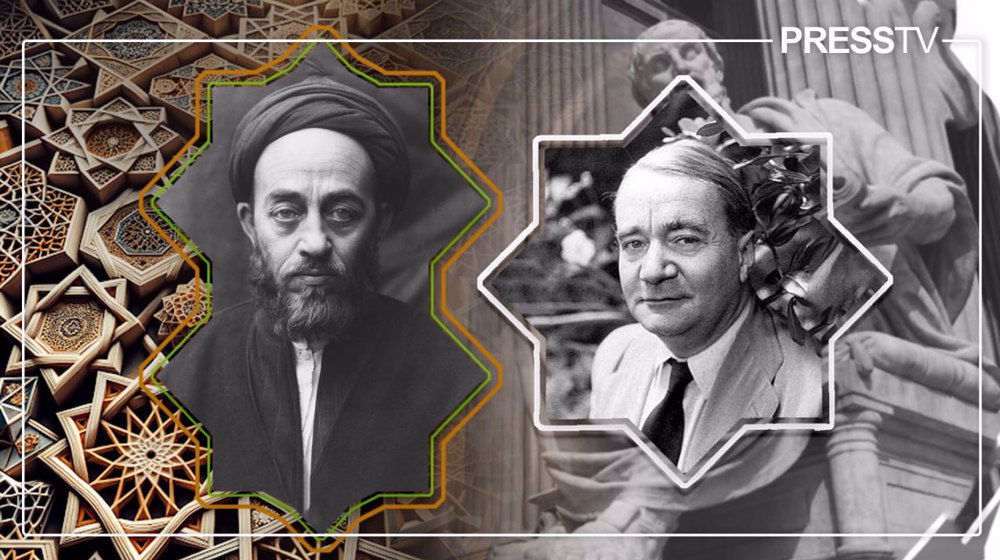



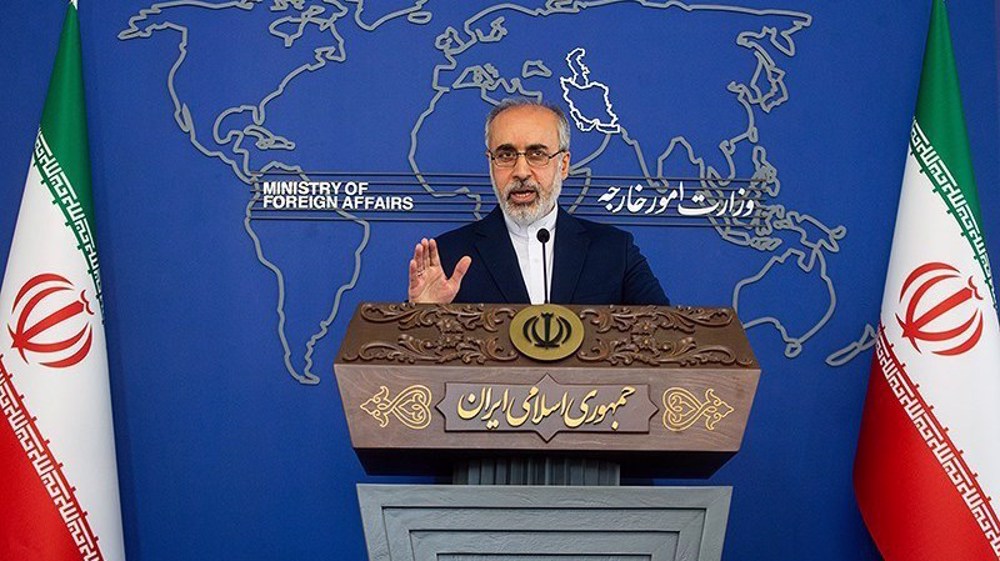
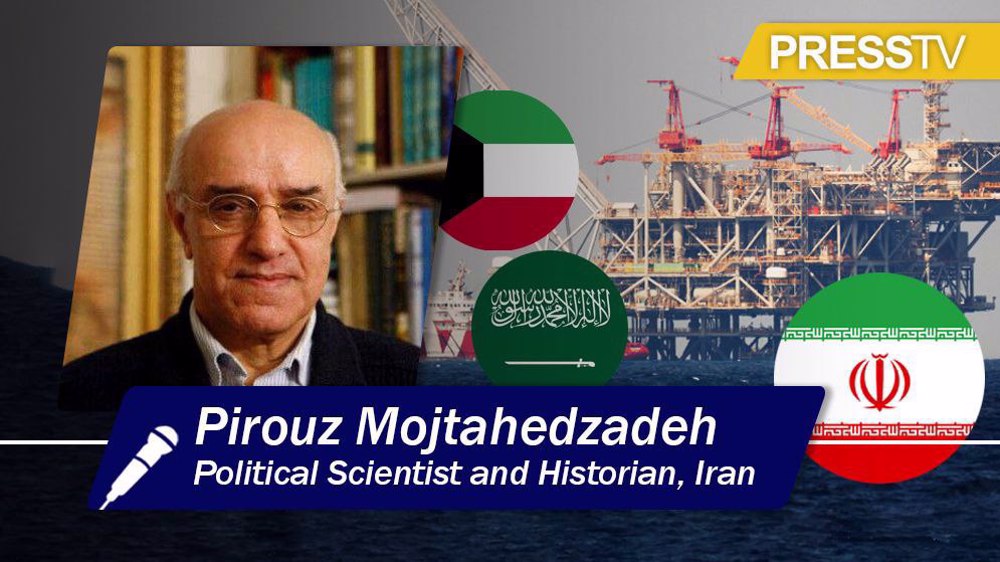

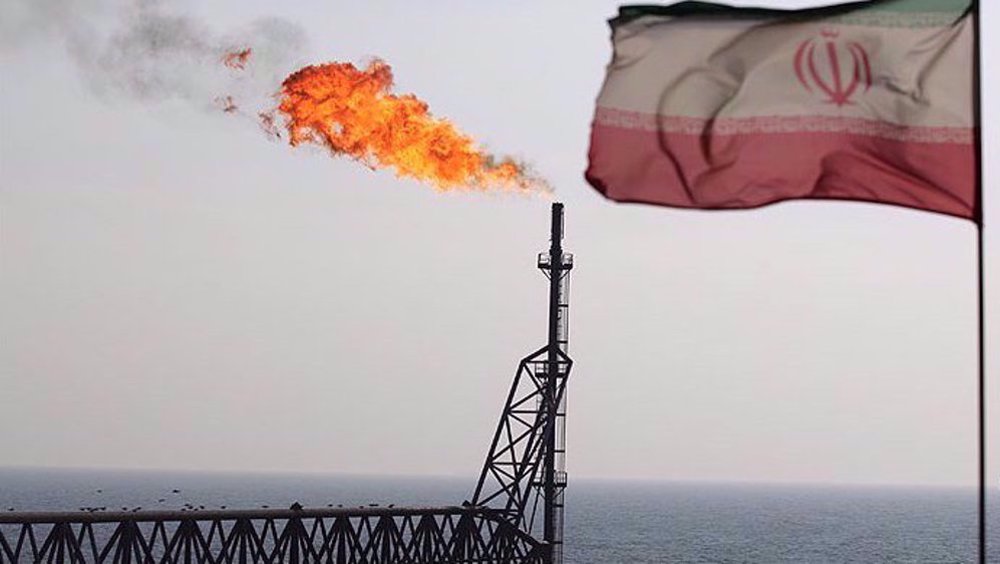
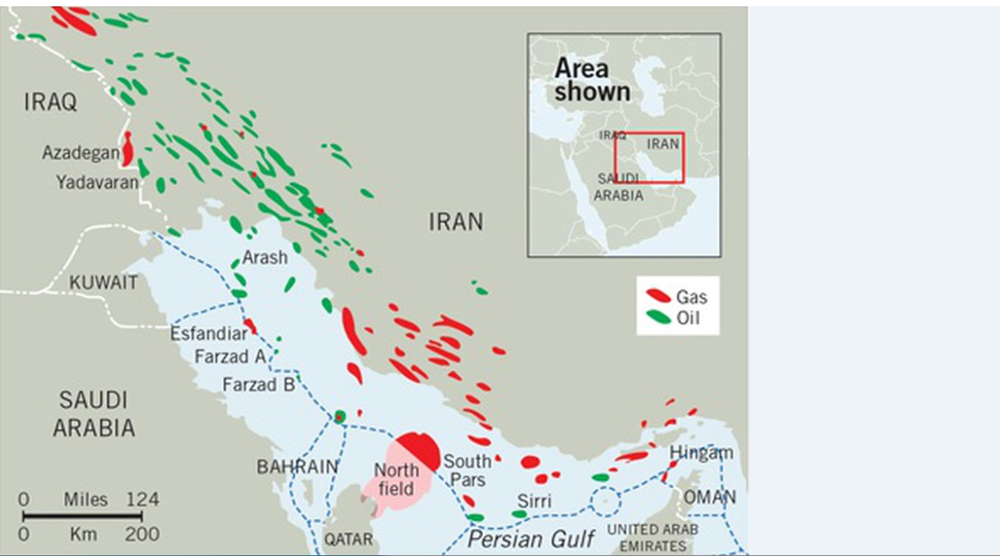

 This makes it easy to access the Press TV website
This makes it easy to access the Press TV website